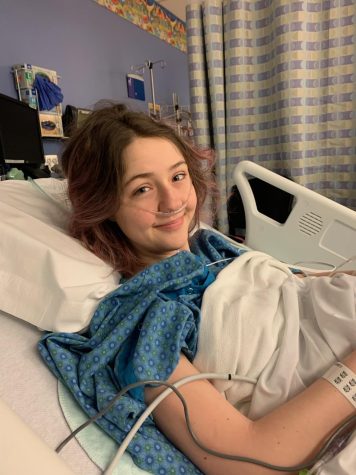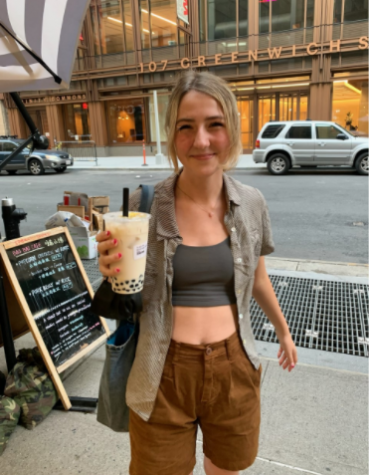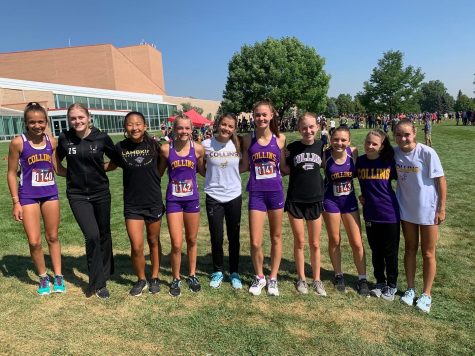Navigating high school as a student with chronic illness teaches importance of kindness
May 17, 2023
Student Body Officer. Editor in Chief. NHS Board Member. Peer Counselor. I have a lot to show for my high school experience. But starting out, my freshman year of high school, like most freshman experiences, was marked by desperate attempts to fit in, to not be targeted by the seniors for walking a bit too fast or a bit too slow through the hallways and to survive.
It did not help, of course, that my 9th grade year was filled with endless doctor’s appointments, tears, and an aching pain spread through my entire body. It was during this year, that a doctor told me that I may have Ehler’s Danlos Syndrome, a connective tissue disorder that causes pain and inflammation of the joints, and POTS, a syndrome signaled by dizziness and black-outs.
For the four years following that appointment, I have navigated this diagnosis, and the struggles that come with it, not to mention a chronic fatigue diagnosis, a potential hypothyroid condition and the side effects that accompany long COVID, which I have struggled with since a positive test in the spring of last year. Coming to terms with my new physical condition, as I was once a healthy volleyball player and have always been eager to adventure, has not been a linear process. I became unrecognizable to myself, lethargic and missing out on activities and classes I wanted to attend.
While navigating this constant maze of trying to balance a social and academically focused life, and my own health, I discovered much to my chagrin that most things in life are connected. This pain and sickness I have physically felt for the past four years has had effects on my mental wellbeing, including a severe case of FOMO I am still trying to overcome, and occasional bouts of depression and anxiety, which I am coming to find out is common amongst my peers.
What is not common however are the specificities of my condition. A measly 6.8% of adolescents have POTS and 2% have CFS (chronic fatigue syndrome), and I can only assume the likelihood of having both is statistically similar to winning the lottery. Not to mention, a mere 4% percent of all students have dealt with the effects of long COVID and it is thought that only 1 in 20,000 people have EDS or HSD (a nearly identical hypermobility disorder). The data surrounding my conditions may give the impression that my situation is rare, and at times these small numbers have made me feel small myself.
However, in truth I am hardly alone in my experience. The majority of those with CFS, like me, are female, and in terms of the long term effects of COVID, there is a large population that has not been directly diagnosed with this condition, yet show symptoms (brain fog, muscle pain, anxiety etc). Even the majority of those with EDS, often take months or years of doctor’s appointments and treatments to discover they have the condition causing their unique and hodge-podge list of symptoms, just like me.
I find myself in good company once again, as a whopping 46% of kids my age or younger live with chronic pain. And more than 40% of all high school students suffer from a chronic condition of some variation. These numbers allow me to feel less alone as I wander the hallways, knowing that any one of these students could be navigating the same invisible pains as myself.
These statistics do not make me less unique, in fact, they make me less solitary. I am able to take inspiration from my peers who struggle in any capacity from a physical or mental health issue, because I know first hand the pain and effort it takes to overcome these roadblocks we so often have no control over.
Because of this, I also know first hand what kindness can mean in times rife with struggle and battles to overcome.
I know what it means to have friends who accommodate you and look after you when you aren’t feeling well. Friends, who don’t understand when you apologize about slowing them down because they are just happy you’re there. Friends who hold your hand while you traverse the rocky side of Horsetooth with unstable hips. The kind of friends who never make you feel like a burden.
I know the impact of teachers who gift you grace, understanding, and support in response to health related absences which so often cause you to fall behind.
I am incredibly lucky and grateful to have had a family who helps me get back on my feet when I am knocked down by the weight of it all; not to mention doctors who are patient oriented and look me in the eye when discussing my health care (a rarity in the medical profession, shockingly.)
The generosity of the people around me, even distant peers who are simply kind without reason to be, has allowed me to dig up joy and acceptance even when it seems too difficult to find.
The achievements I am celebrating now – graduating, going to college and being able to put in the time and effort to focus on self-care – can all be attributed to the patience, graciousness and encouragement other people have shown to me.
Because of this, I am now more focused on spreading kindness and joy however I can. I am simultaneously learning how to ask for help, even when it feels embarrassing and impossible to do so, and how to give help, even if it’s in the form of so-called “small” acts of kindness like a smile and wave in the hallway, checking in with my loved ones on the good and bad days, and freely expressing my gratitude and thankfulness as often as I feel it.
Learning this lesson has improved my life in every aspect. Even knowing that some of the health issues I face are ones I will never grow out of, I am determined to overcome the cynicism I have faced on my darkest days, and continue to find resiliency and strength in kindness, no matter how “small.”



